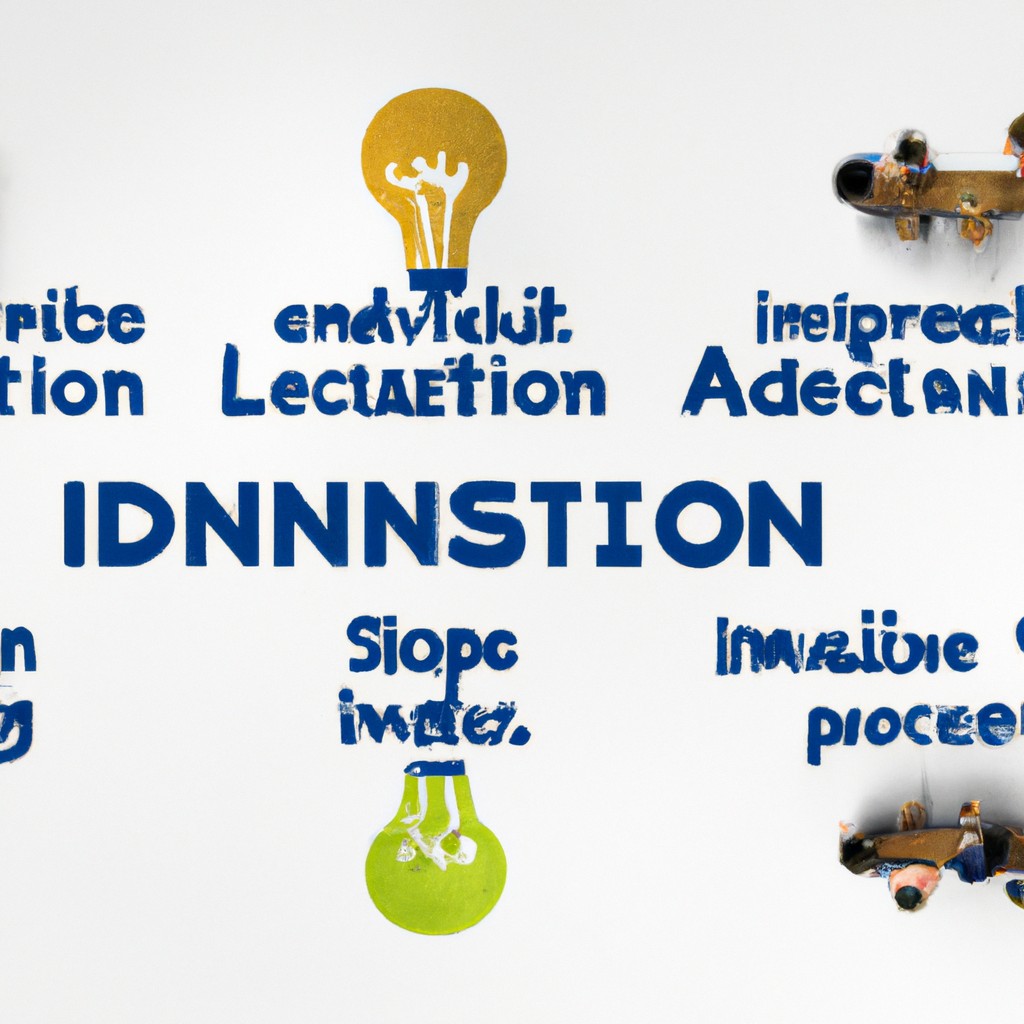Methods of Measuring Stakeholder Engagement

Measuring stakeholder engagement involves various methods: surveys, interviews, social media analysis, and feedback collection. Surveys gather opinions through structured questions. Interviews provide in-depth insights through one-on-one conversations. Social media analysis tracks online interactions for sentiment analysis. Feedback collection encourages stakeholders to share their thoughts for continuous improvement. Each method offers unique advantages for understanding stakeholder perspectives and enhancing relationships. By utilizing a combination of these methods, organizations can develop a comprehensive understanding of stakeholder engagement levels, identify areas for improvement, and strengthen connections with key stakeholders. Effective measurement strategies promote transparency, trust, and collaboration between organizations and their stakeholders.
Read more
Key Performance Indicators for Stakeholder Engagement

Key performance indicators for stakeholder engagement are crucial metrics that assess how effectively businesses interact with various stakeholders such as customers, employees, and communities. These indicators provide valuable insights into the overall health of relationships and the success of engagement efforts. By measuring factors like communication effectiveness, trust levels, and alignment with stakeholder expectations, organizations can gauge their impact and make informed decisions to improve engagement strategies. Effective use of KPIs helps businesses build strong relationships, enhance reputation, and drive sustainable growth. Regular monitoring and analysis of these indicators enable companies to adapt to changing stakeholder needs and foster positive long-term partnerships.
Read more
Challenges and Limitations in Evaluating Stakeholder Engagement

Evaluating stakeholder engagement presents challenges like diverse perspectives and varying levels of involvement. The complexity arises from different expectations and communication styles. It requires a tailored approach for effective assessment. The limitations include resource constraints and subjectivity in interpretation. Balancing the needs and interests of stakeholders while measuring their impact is crucial. Ensuring inclusivity and transparency in evaluations is essential for building trust and credibility. The process demands continuous refinement and adaptation to capture the dynamic nature of stakeholder interactions. Striving for meaningful engagement enhances organizational performance and fosters positive relationships within the community.
Read more
Best Practices and Case Studies in Successful Stakeholder Engagement.

When it comes to successful stakeholder engagement, the key lies in open communication and active involvement. By listening to stakeholders' concerns and addressing them transparently, companies can build trust and strengthen relationships. Case studies have shown that organizations that prioritize stakeholder engagement see positive outcomes, such as improved reputation and increased support. Implementing best practices, such as regular communication, seeking feedback, and honoring commitments, can lead to mutual understanding and collaboration. Successful engagement involves empathy, accountability, and a genuine willingness to work together towards shared goals. By valuing stakeholders' perspectives and incorporating them into decision-making processes, businesses can achieve sustainable success.
Read more
Stakeholder identification

Stakeholder identification is crucial for project success. It involves recognizing individuals, groups, or entities with an interest in the project. Effectively identifying stakeholders enables better communication and engagement strategies. This process requires thorough analysis and regular updates to ensure all relevant parties are included. Stakeholder identification may involve internal and external groups with varying levels of influence and interest. Engaging stakeholders early on can prevent misunderstandings and increase project support. By actively involving stakeholders throughout the project lifecycle, organizations can build stronger relationships and enhance overall project outcomes. Clear communication and collaboration are essential for successful stakeholder management.
Read more
Developing stakeholder engagement strategies

Developing effective stakeholder engagement strategies involves identifying key stakeholders and understanding their needs and expectations. Communication plays a crucial role in keeping stakeholders informed and involved in decision-making processes. Building trust is essential for fostering positive relationships and maintaining open lines of communication. Engaging stakeholders in a transparent and inclusive manner can lead to better decision outcomes and enhance project success. Listening to stakeholders' feedback and addressing their concerns demonstrates a commitment to collaboration and builds credibility. Tailoring engagement strategies to different stakeholder groups can help ensure that their diverse perspectives are taken into account. Consistent engagement and follow-up are vital for sustaining stakeholder relationships.
Read more
Understanding stakeholder groups

Stakeholder groups include individuals or organizations impacted by a company's actions. It's essential to identify stakeholders' interests, concerns, and expectations. Effective communication with stakeholders builds trust and enhances relationships. Understanding stakeholder perspectives helps businesses make informed decisions. Engaging stakeholders in decision-making fosters collaboration and mutual understanding. Companies that prioritize stakeholder engagement benefit from increased loyalty and support. By actively involving stakeholders in the decision-making process, businesses can mitigate risks and seize opportunities. To achieve long-term success, organizations must continuously assess and address stakeholder needs. Engaging with diverse stakeholder groups strengthens a company's social license to operate. Transparent communication is key to nurturing positive stakeholder relationships.
Read more
Measuring and evaluating stakeholder engagement efforts

Measuring stakeholder engagement involves assessing communication effectiveness. Evaluating efforts determines impact and informs strategy. Utilize surveys, interviews, and metrics for data collection. Monitoring progress allows for adjustments. Analyzing feedback guides decision-making processes. Implement changes based on insights gained. Active participation fosters stronger relationships. Recognize achievements to encourage continued engagement. Regular assessment ensures alignment with stakeholder expectations. Continuous improvement drives meaningful connections. Effective measurement leads to enhanced trust and collaboration. Transparency and accountability are key pillars. Engaged stakeholders contribute to organizational success. Establish clear objectives and KPIs for evaluation. Stakeholder-centric approaches yield positive outcomes. Foster a culture of openness and dialogue.
Read more
Assessing stakeholder interests and needs

Assessing stakeholder interests and needs is crucial for project success. Engaging stakeholders early builds trust. Understanding stakeholders' perspectives aids in decision-making. Collecting data through surveys and interviews is common. Analyzing feedback helps prioritize stakeholders' needs. Collaboration ensures stakeholders feel valued. Regular communication maintains stakeholder engagement. Regular reviews tailor project strategies. By genuinely listening, relationships strengthen. Adapting to evolving stakeholder needs is vital. Unanticipated needs may arise unexpectedly. Flexibility ensures responsiveness to stakeholders. Monitoring changes enables proactive adjustments. Stakeholder satisfaction is a key indicator of project success. Continuously assessing stakeholder interests fosters positive relationships. Transparent communication builds trust and long-term partnerships. Identifying stakeholders' evolving interests drives project alignment and achievement.
Read more
Examples of successful stakeholder engagement

Successful stakeholder engagement is vital for any project's prosperity. One prime example is the XYZ Corporation, a leader in sustainability practices. Through open dialogue and collaboration, XYZ involves stakeholders in decision-making. This approach fosters trust, enabling long-term success. Another inspiring instance is the ABC Community Center's engagement model. By valuing stakeholders' input, the center ensures programs meet community needs. This inclusive strategy has garnered widespread support and loyalty. Both examples demonstrate the power of effective stakeholder engagement in achieving shared goals and fostering positive relationships. By prioritizing communication and involvement, organizations can create a more sustainable future for all.
Read more












